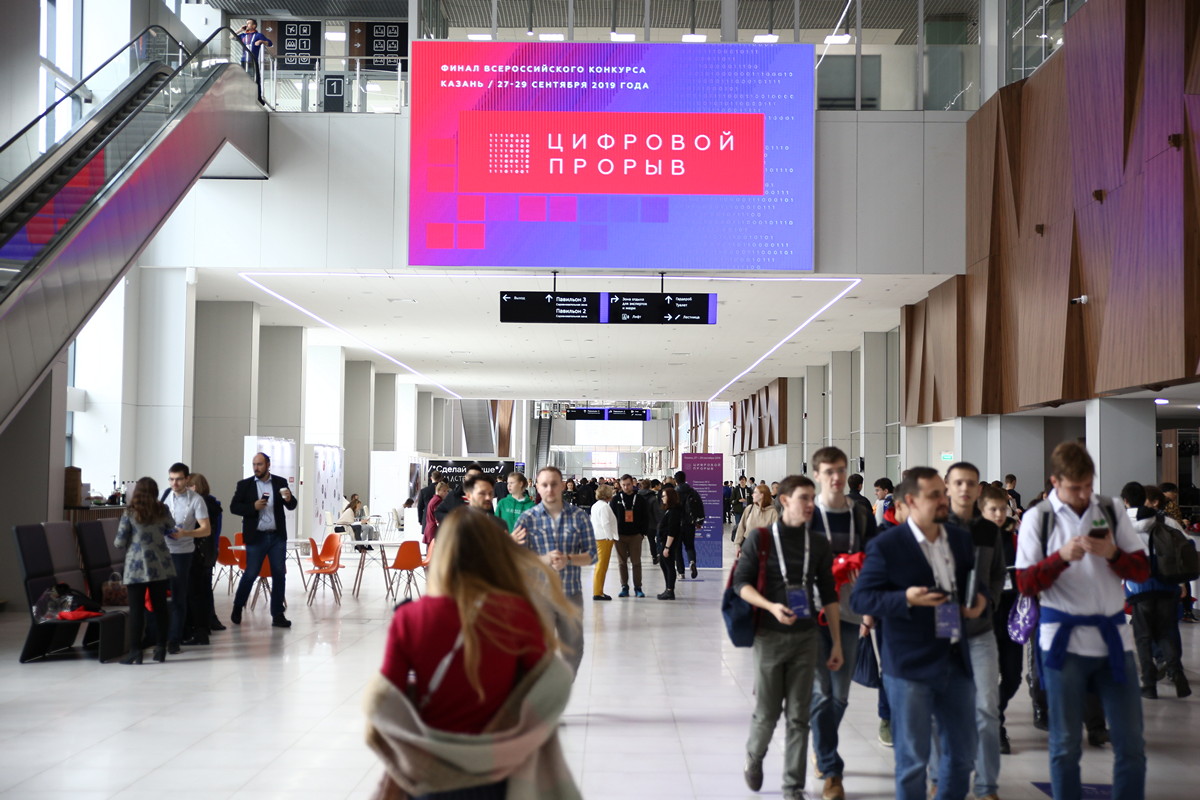
A week ago, a 48-hour hackathon was held in Kazan - the final of the all-Russian contest Digital Breakthrough. I want to share my impressions of this event and get your opinion whether it is worthwhile to carry out such further.
What are you talking about?
I think many of you have just heard the phrase Digital Breakthrough for the first time. I, too, have not heard of this contest for the time being. Therefore, I will start with dry facts.
Digital Breakthrough is one of the projects of the Autonomous Non-profit Organization (Autonomous Non-Profit Organization),
Russia is a Country of Opportunities . It was invented to search for IT talents throughout the country and attract them to the digital home economy. It sounds pathetic, but be patient a little, do not switch.
The competition began on April 3, on this day the acceptance of applications for participation from everyone was opened, regardless of the place of residence - it was enough to be a citizen of the Russian Federation.
66 474 people wanted to try their strength. Of these, 37 566 were admitted to online testing, and 19 203 participants successfully passed it. They were selected in three areas: information technology, design, project management and business analysis.
After that, in 36 cities across the country for almost two months (from June 8 to July 28), regional 36-hour team hackathons were held. And at the end of September, the winners of the regional stages gathered in Kazan. The final stage was September 27-29.
Who filled the hackathon budget?
The finale of the Digital Breakthrough was funded by ANO “Russia - the Land of Opportunities”, several well-known corporations that provided assignments for participants, as well as the Government of the Republic of Tatarstan. Mail.ru Group was one of the general partners.
First impressions
The hackathon was held in the very recently “launched” exhibition complex “Kazan Expo”, which only a few weeks ago hosted the finals of the
WorldSkills International competition.
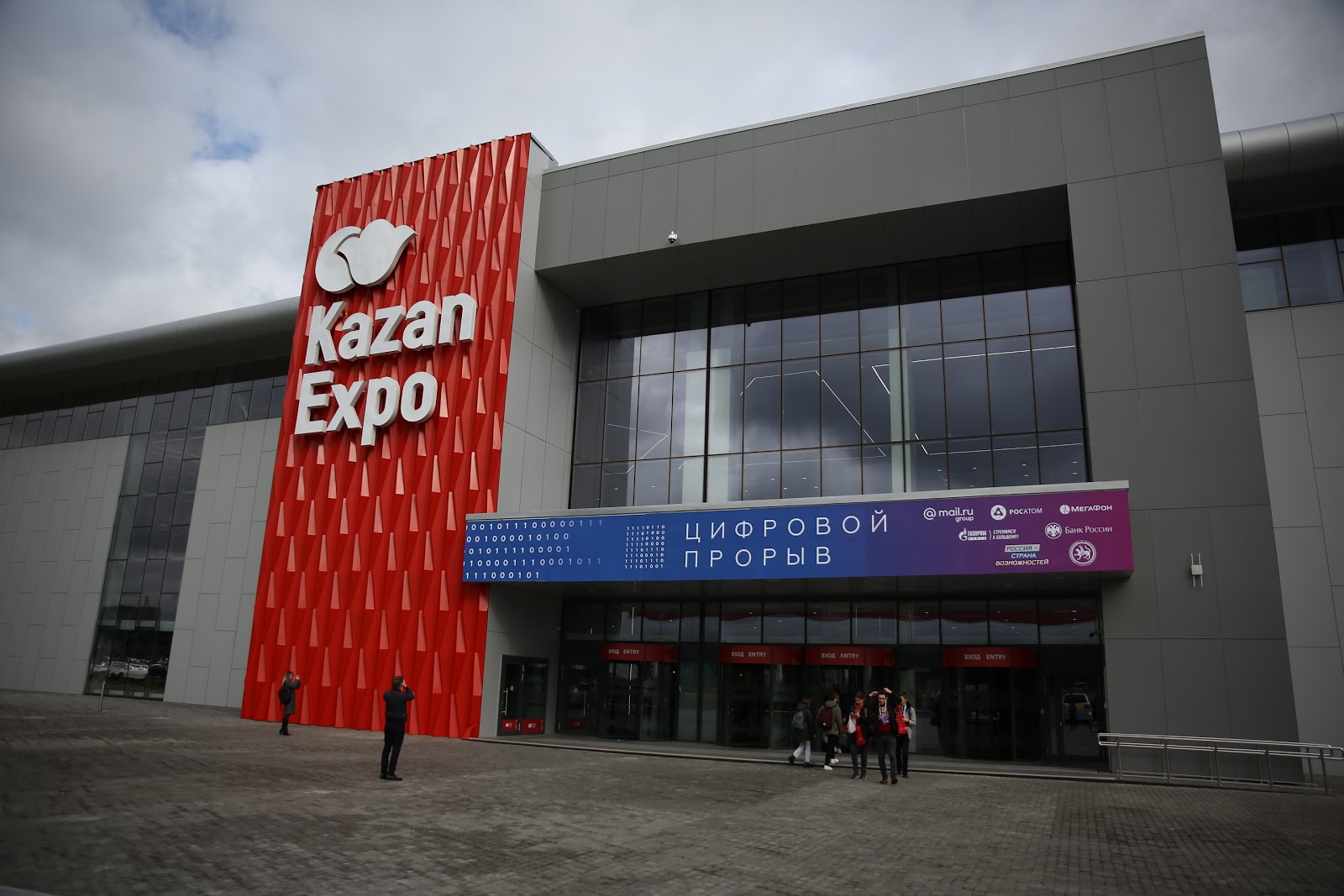
The complex is huge, consists of three lined-up hangar halls that would serve as workshops for the Kazan Aviation Plant. Entering a long, wide corridor, stretching along all three halls, I wondered a lot - why is there such an excess of space for some kind of hackathon.
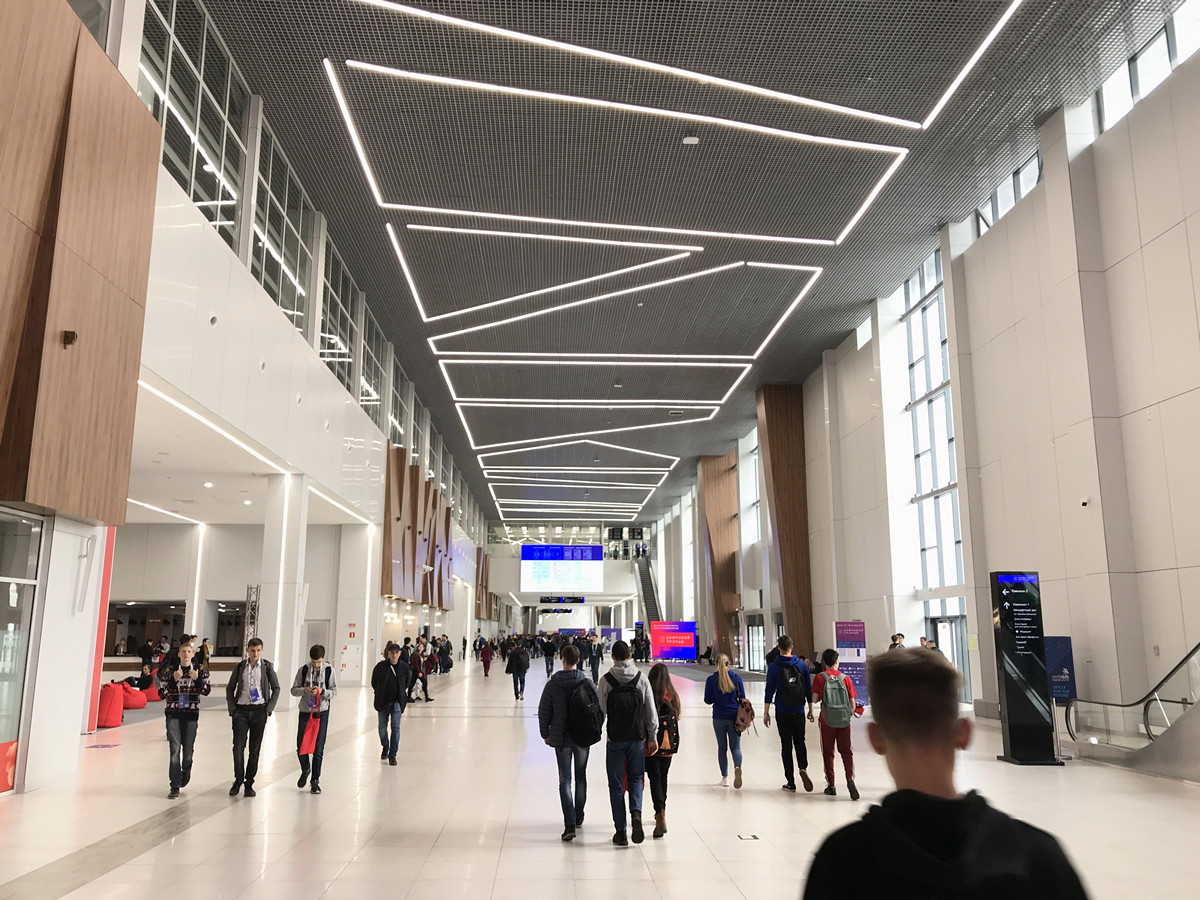
However, the choice was completely logical - at the same time more than 3,000 people participated in the final! And looking ahead, I’ll say that at the closing of the hackathon he was officially recognized as the “Guinness Book of Records” the largest in the world.
We arrived on Friday early in the morning, the participants arrived in an endless stream. Before the start of the competition, while there weren’t so many people, I galloped through the complex.
In the spacious corridor, the stands of several partner companies were occasionally scattered, on which promising young people were attracted under the guise of all kinds of fun and entertainment:
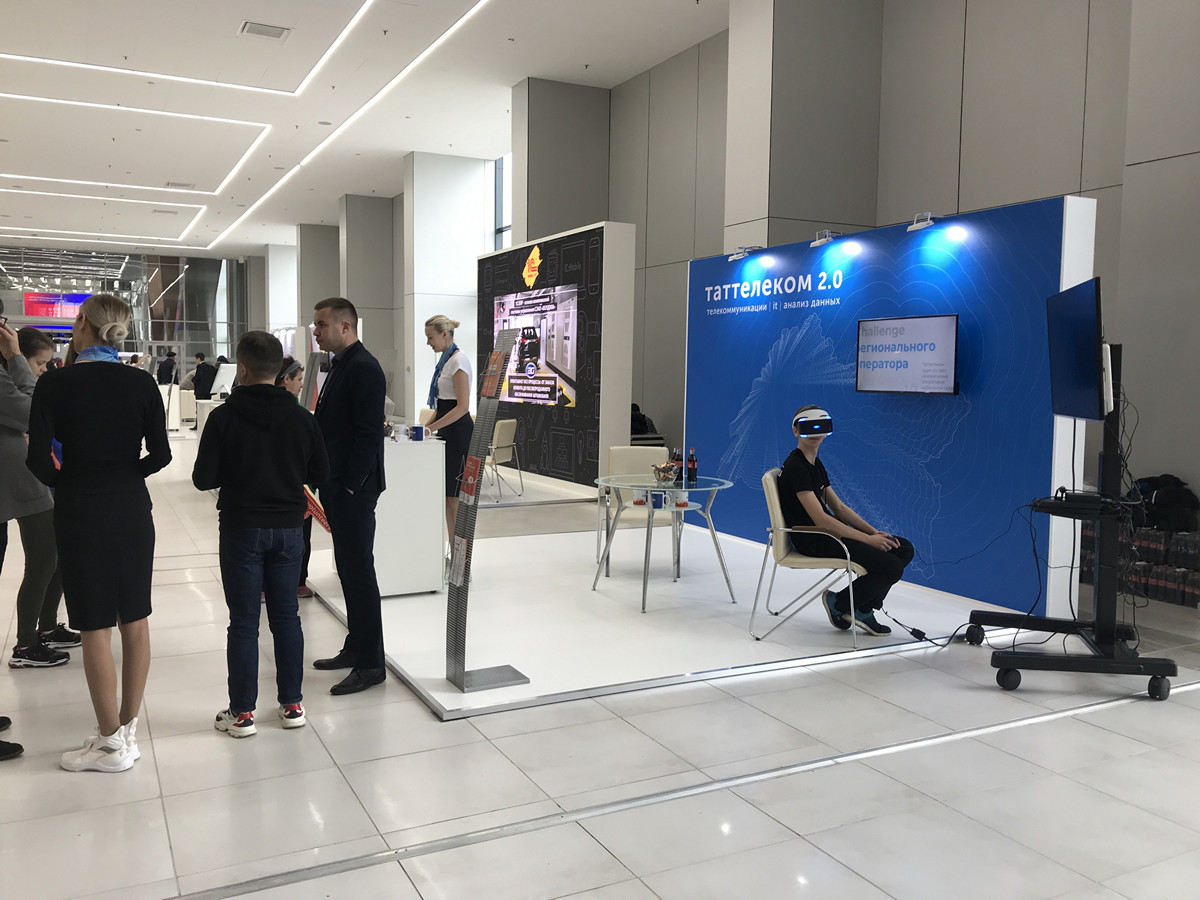
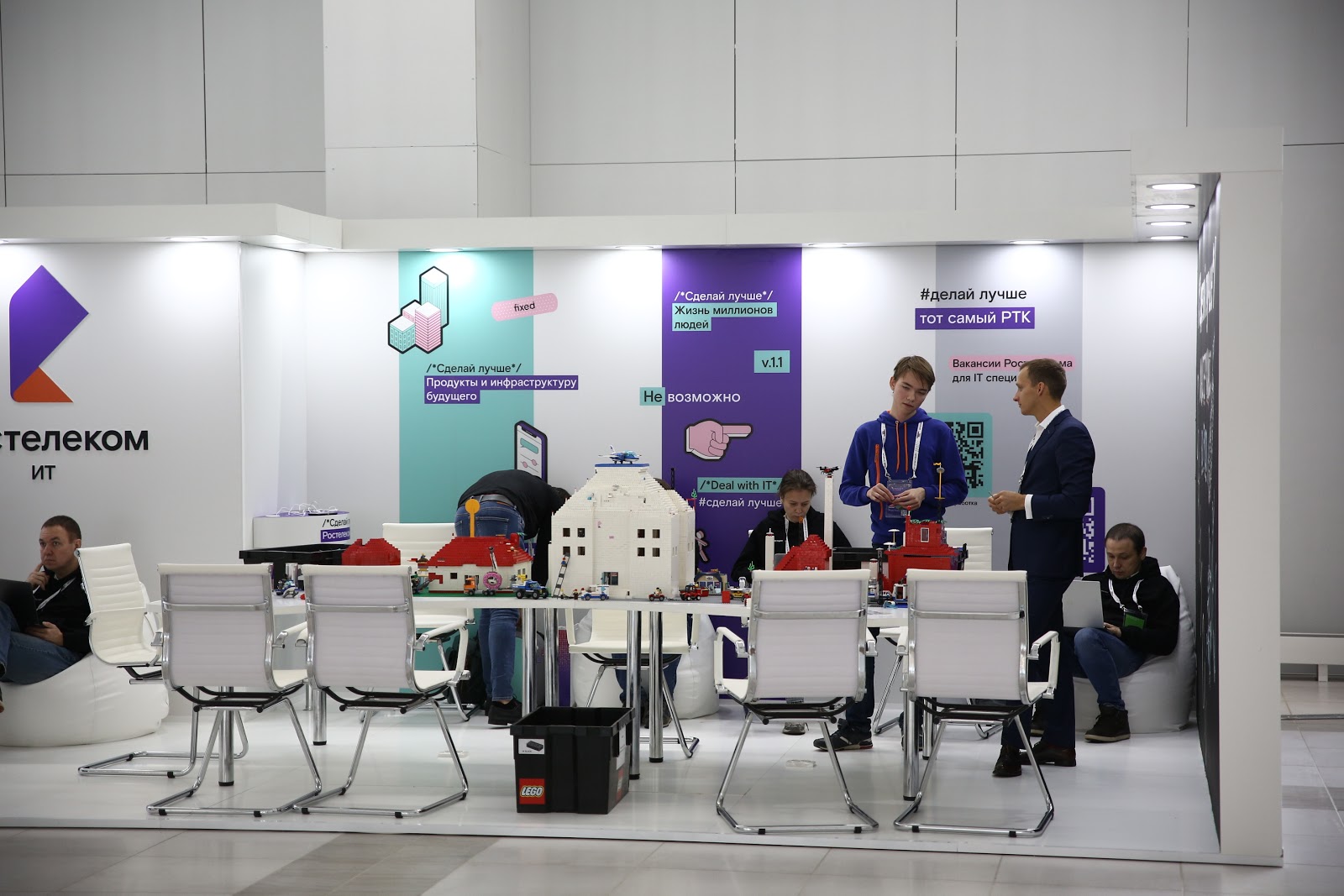

Innopolis put on display his drone car:

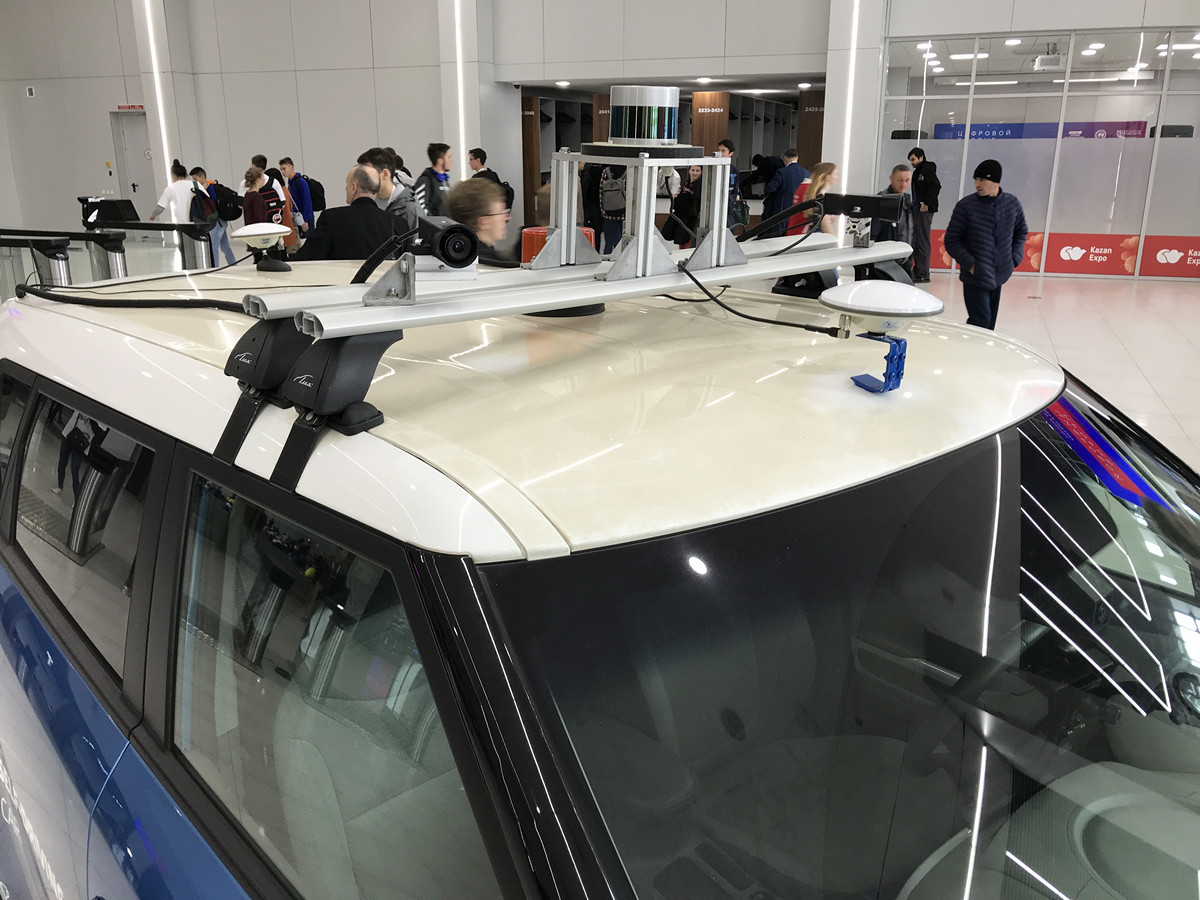


The participants were to be accommodated in the first two halls of the complex:
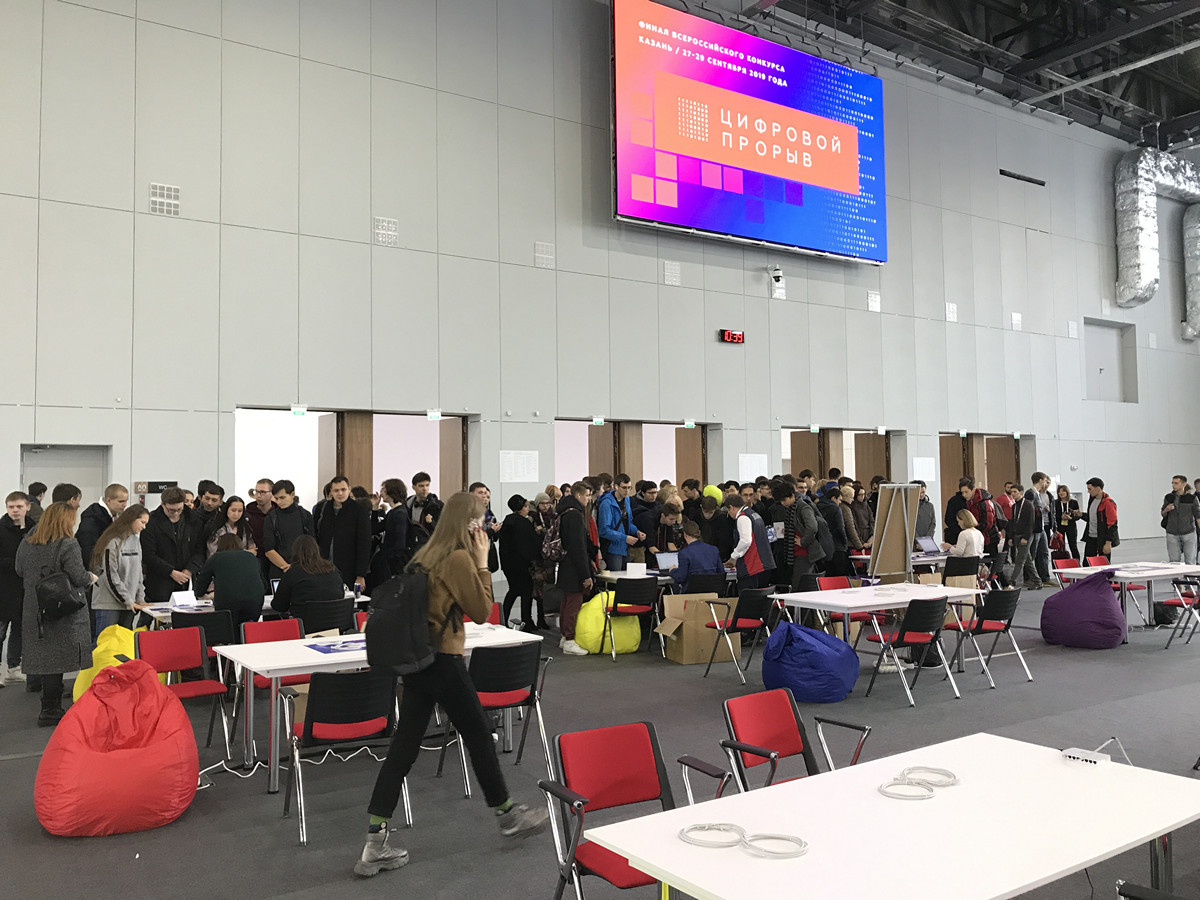
This is about half of one of the rooms:

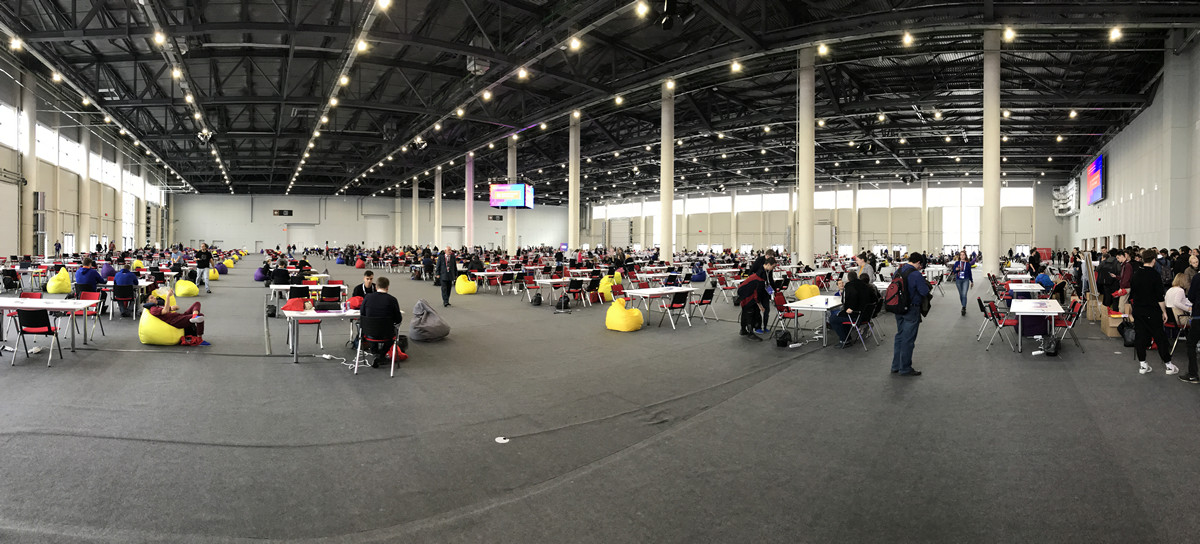
Standard equipment of tables for teams:

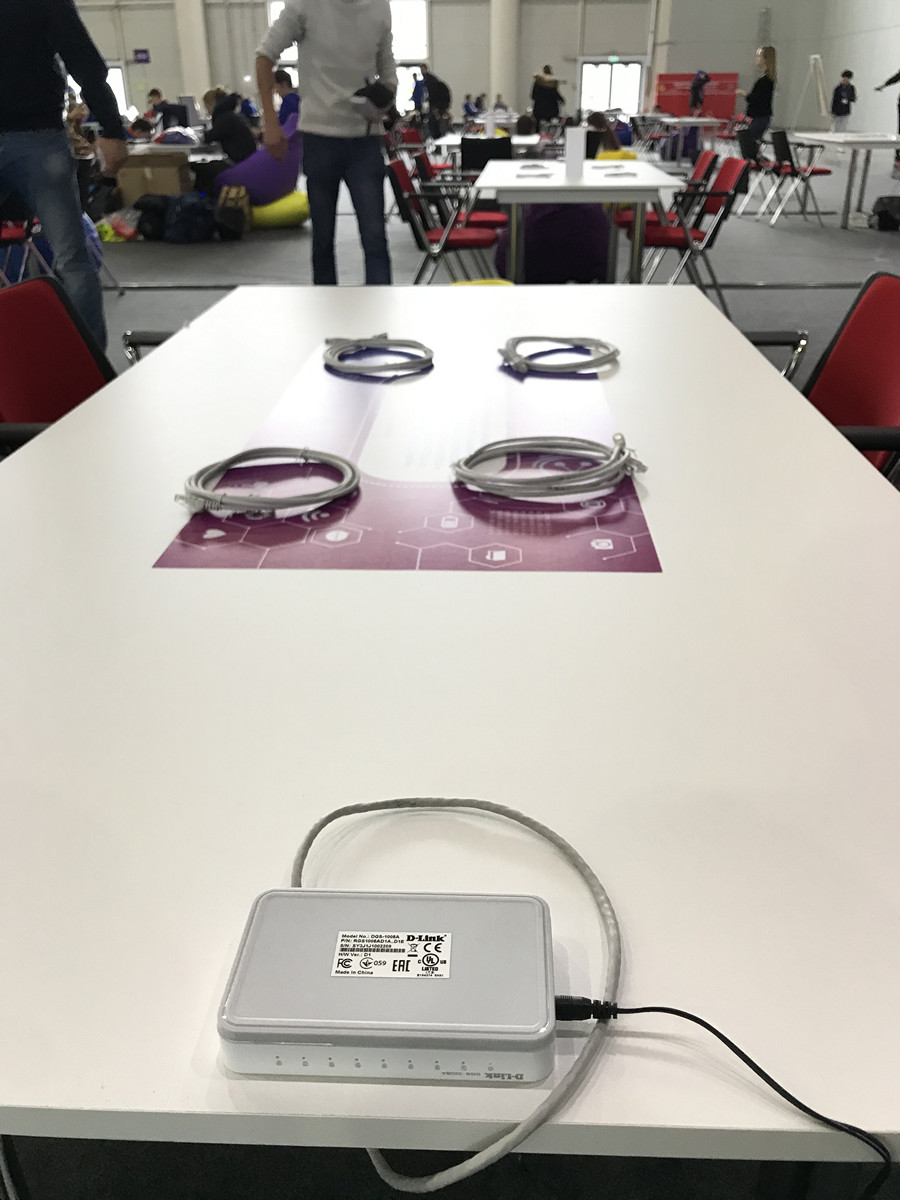
The third hall - half the size of the rest - was turned into a relaxation area of varying degrees of activity:
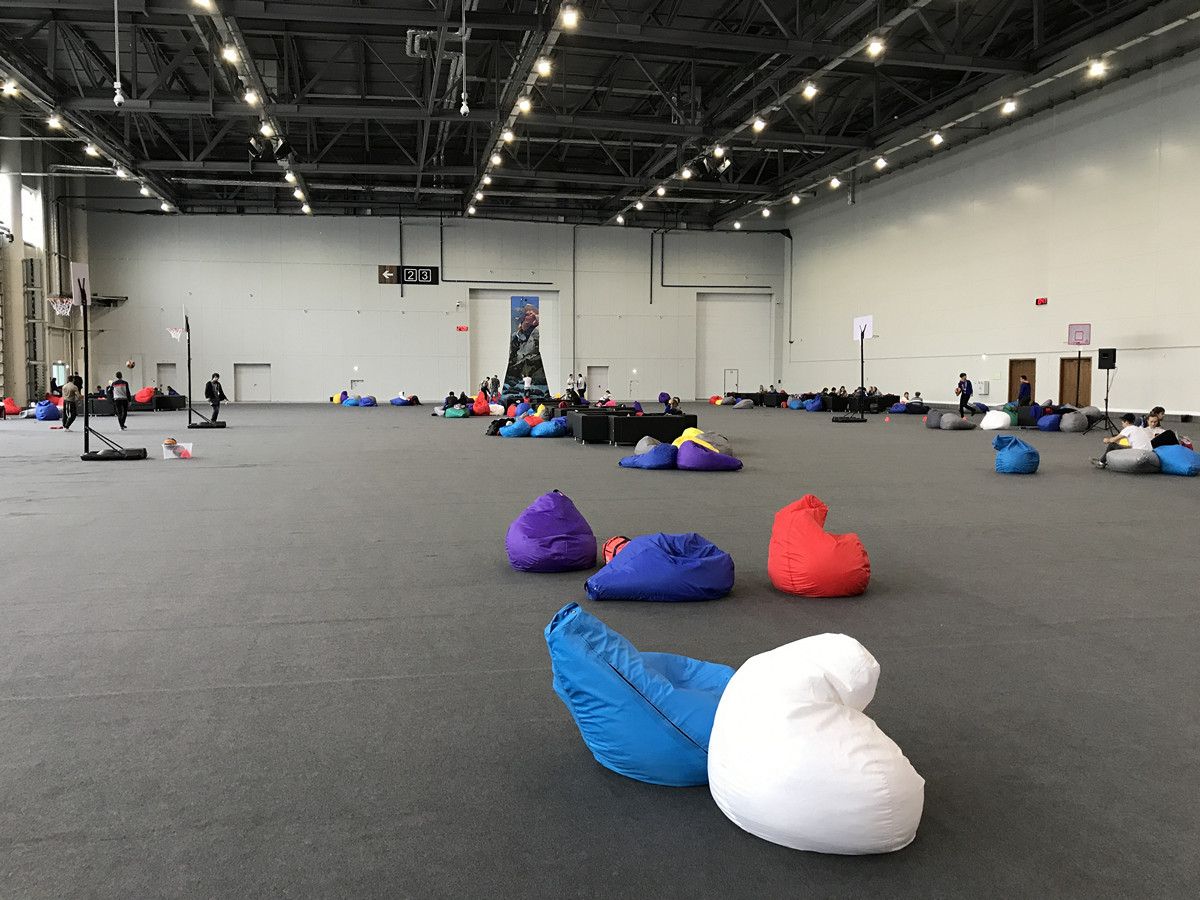
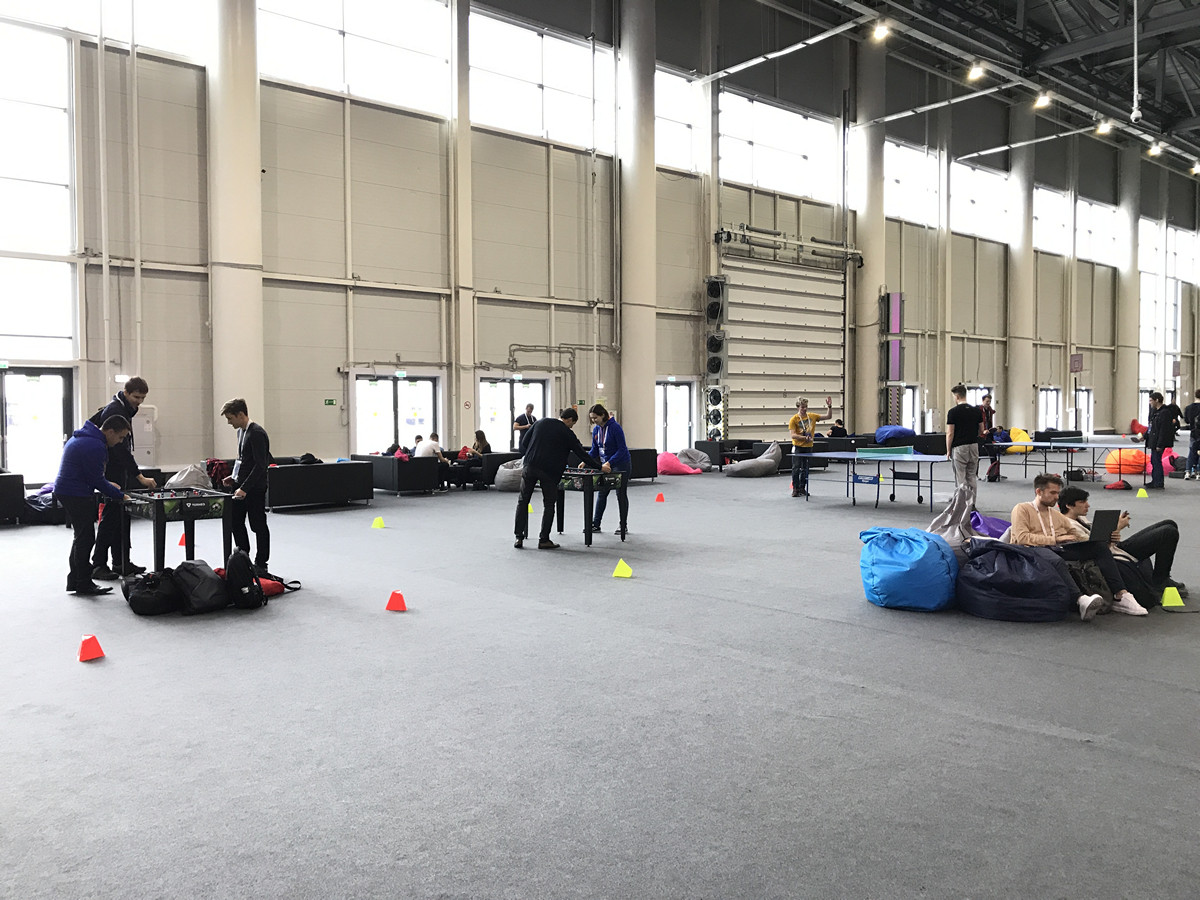
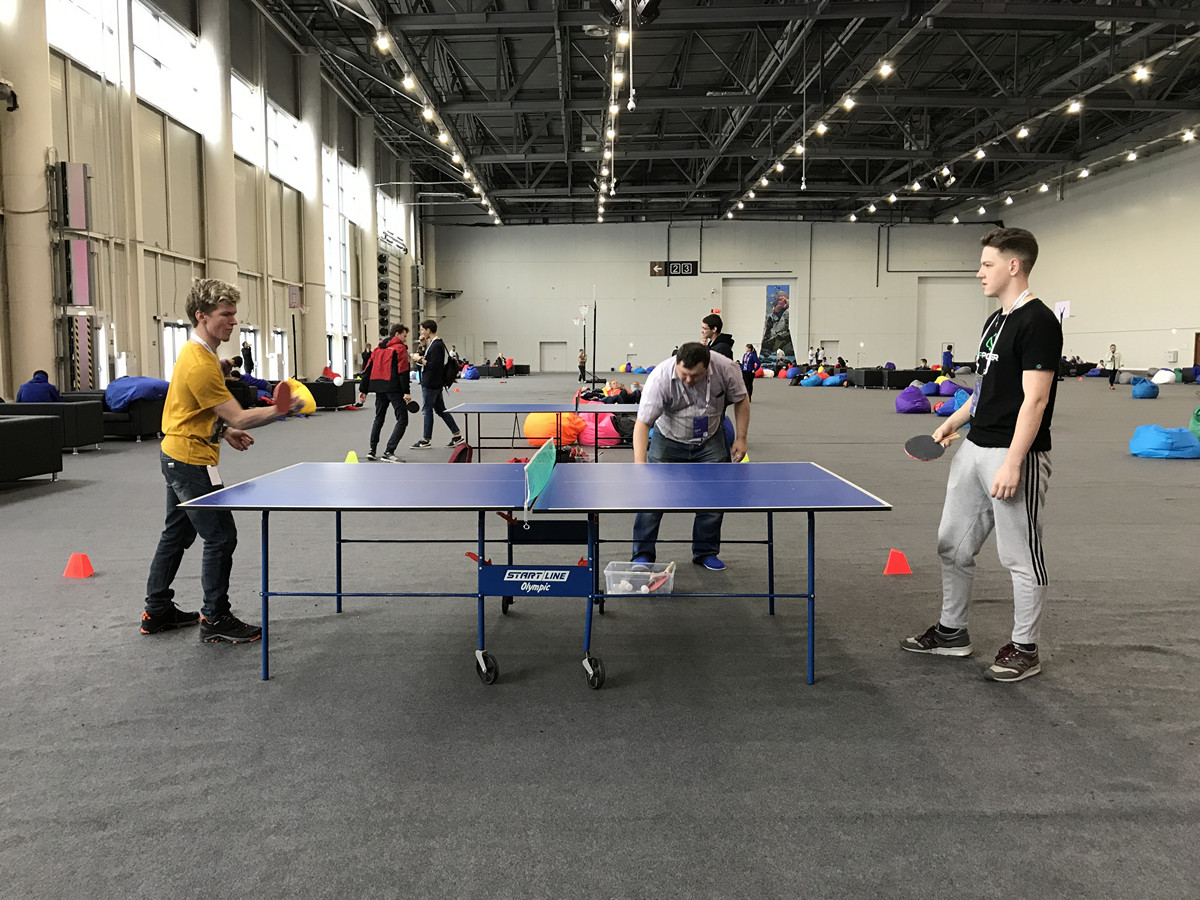
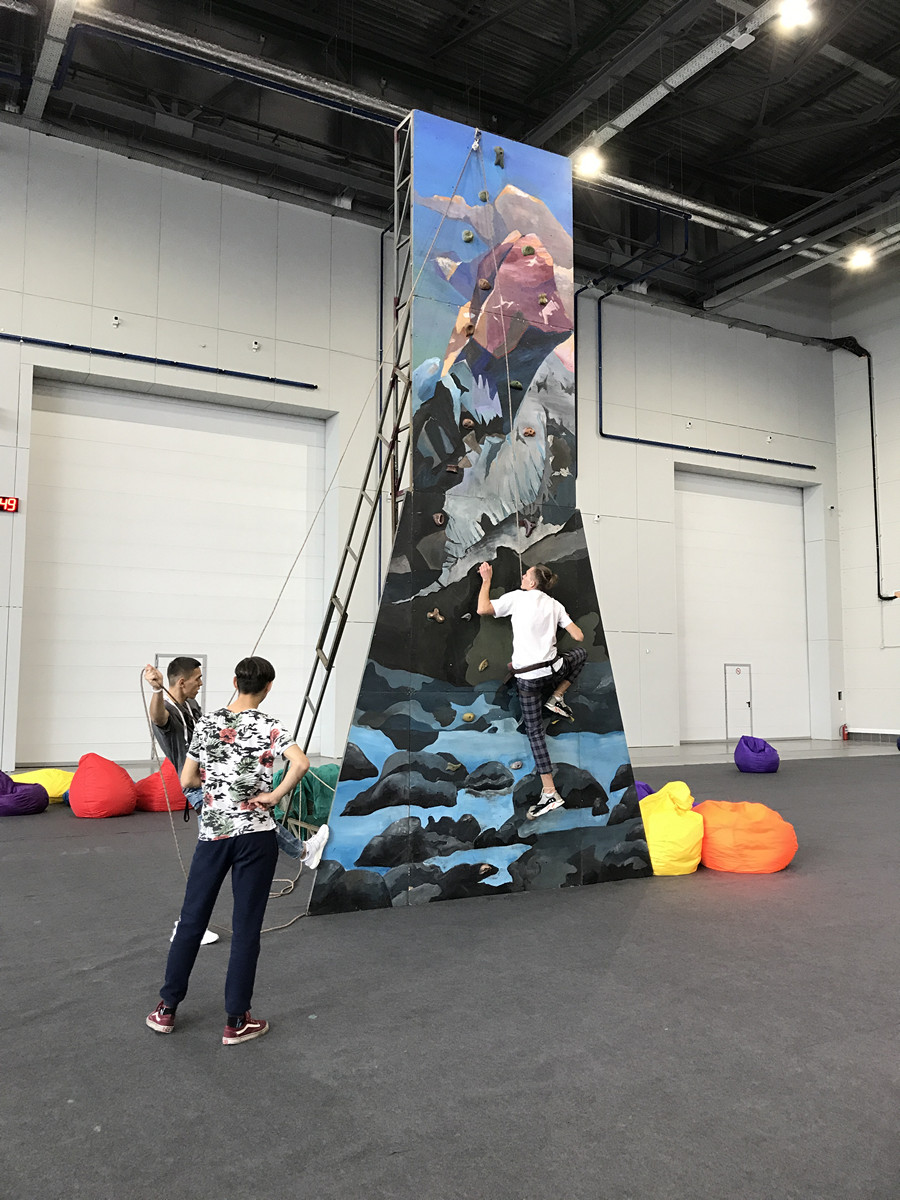
Severe jenga is almost from logs:
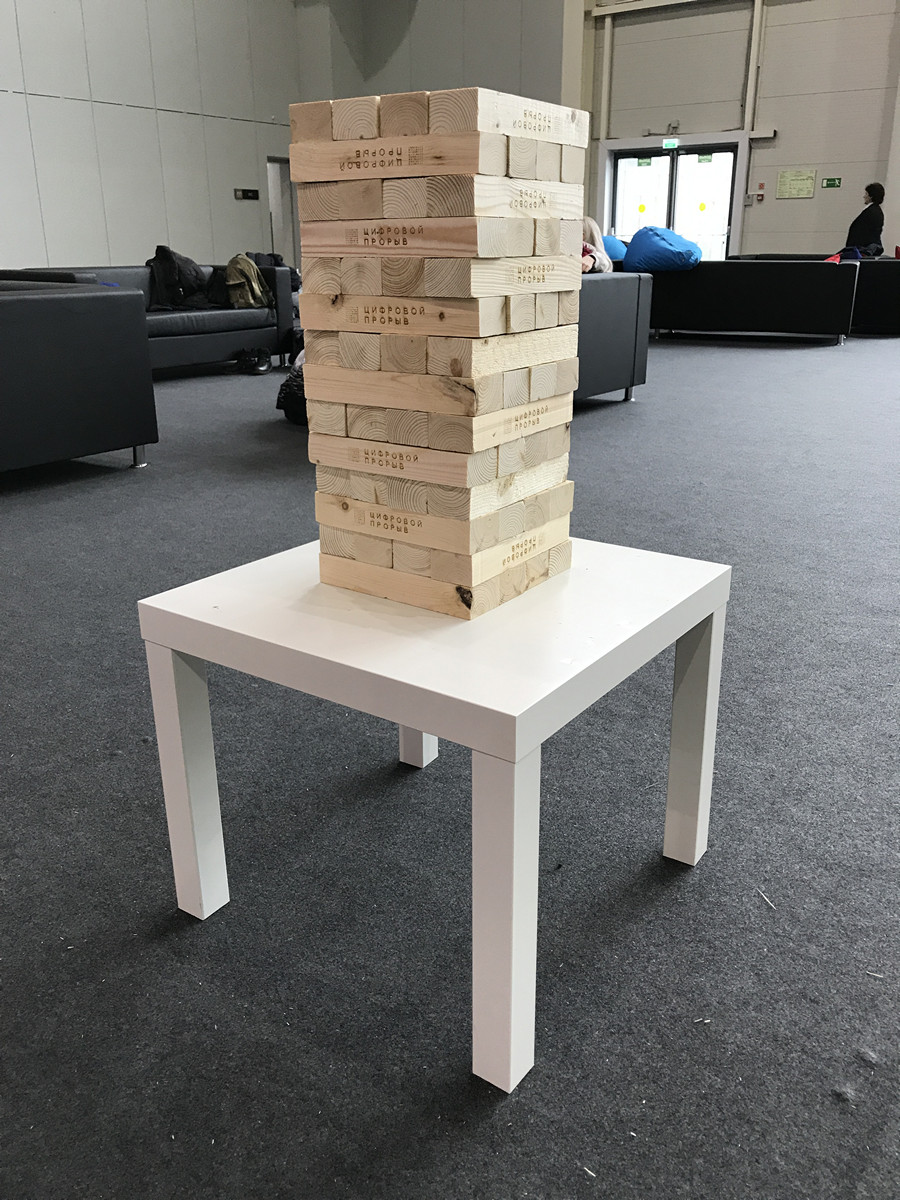

Closer to the opening ceremony in the lobby there was already a rush to register:

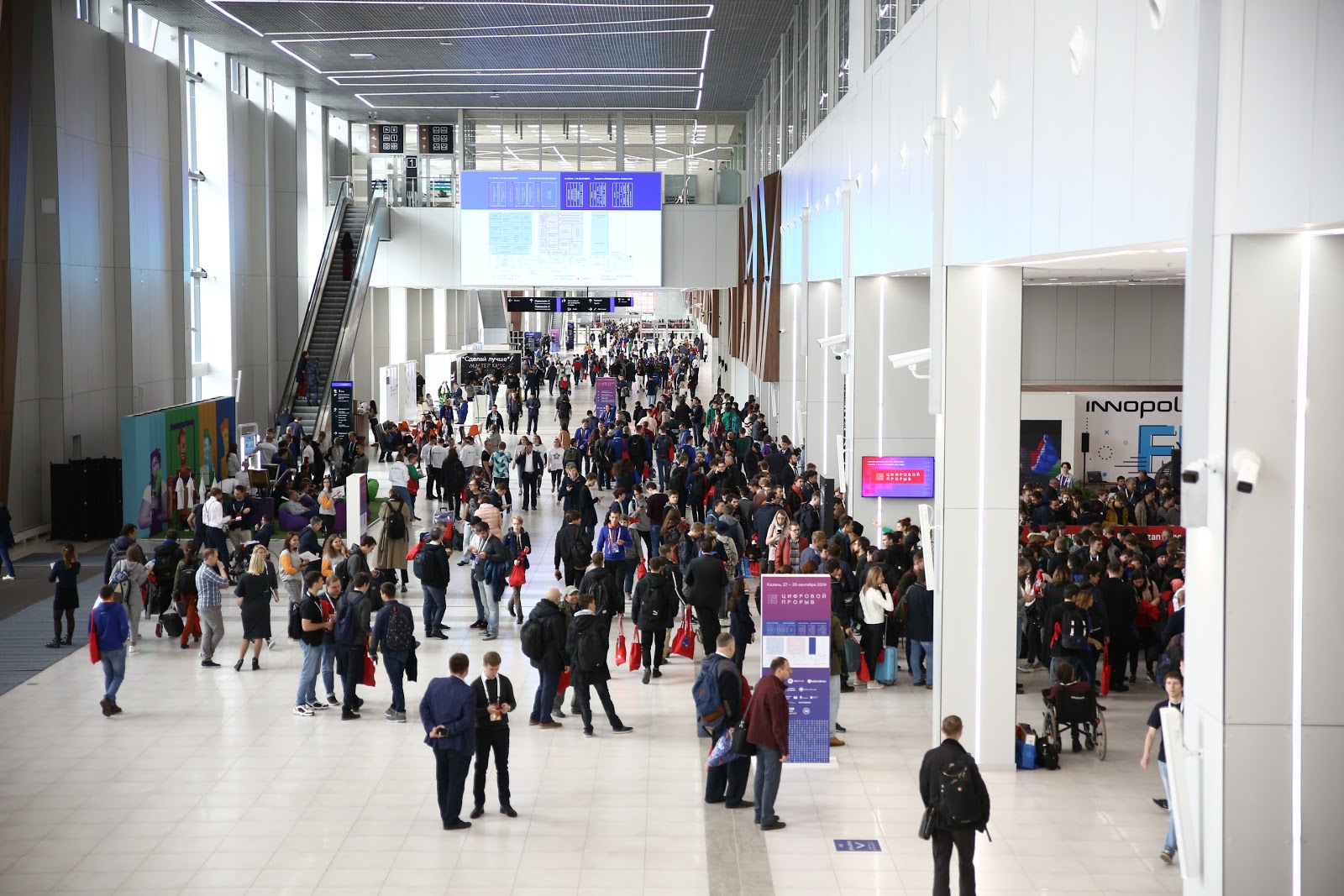
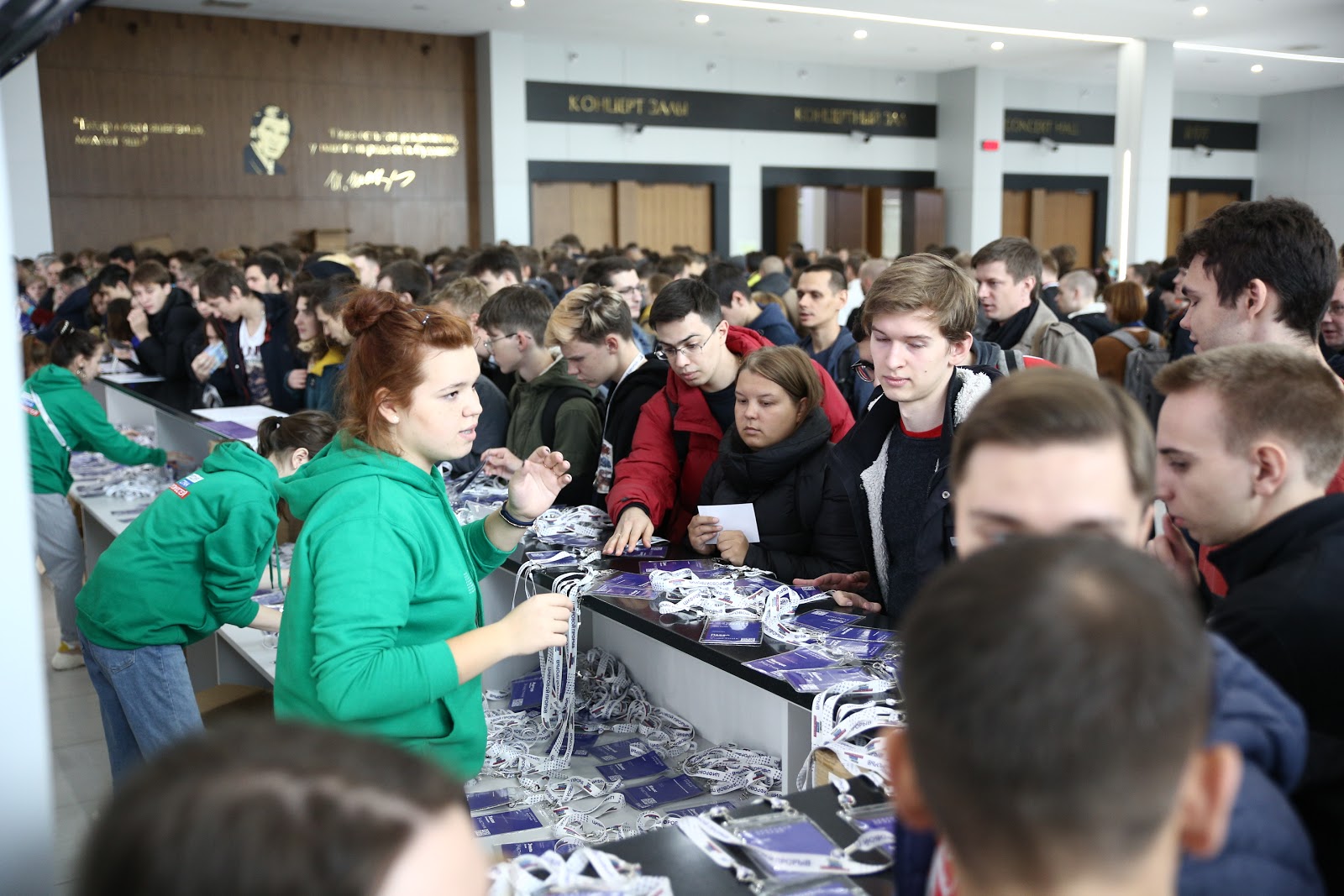
Then there was the opening ceremony. Rich and grand, like at a big festival. It’s better to look at the
video , of course, the photos are completely different. Although the video is also not that :)
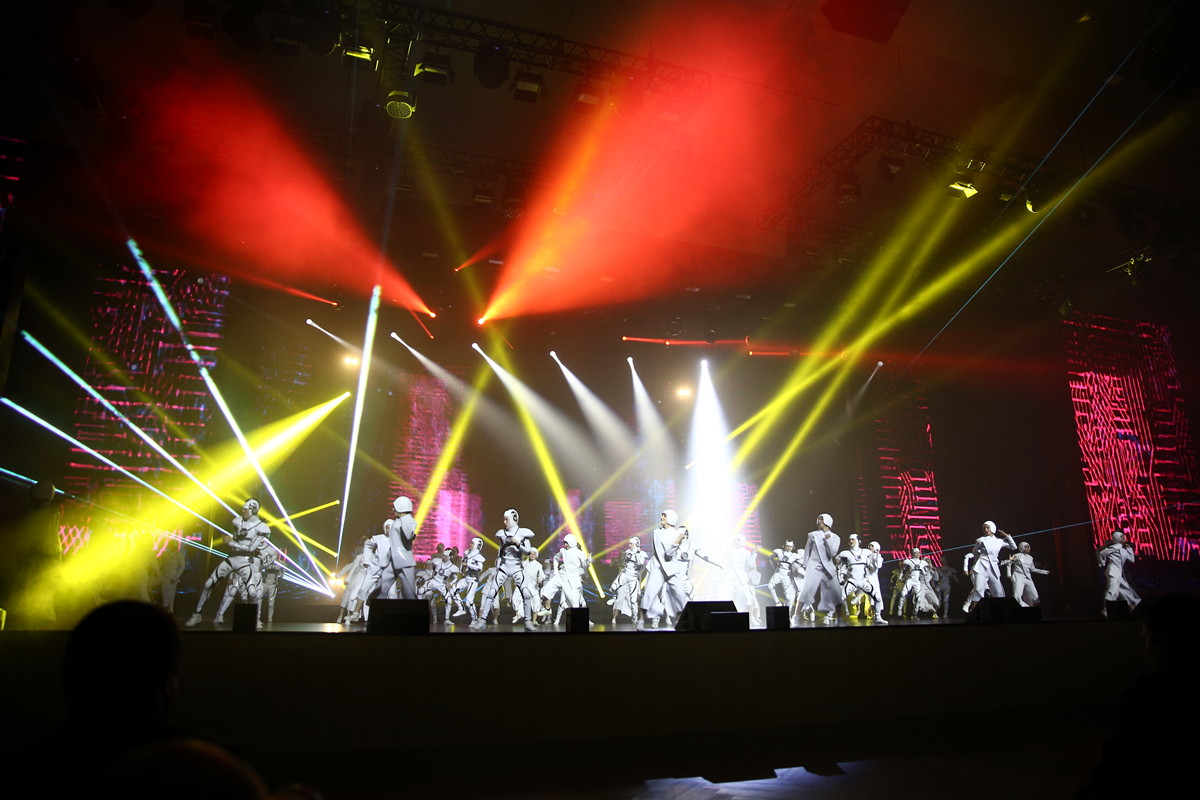

Grandfather and boy are the oldest and youngest members of the hackathon, 76 and 13 years old. And the grandfather, Evgeny Polishchuk from St. Petersburg, is a biophysicist. Even in his youth he became interested in programming, and now he was able to reach the finals, beating tens of thousands of people. And Amir from Kazan, although a schoolboy, has already entered the University of Talents of the Republic of Tatarstan.
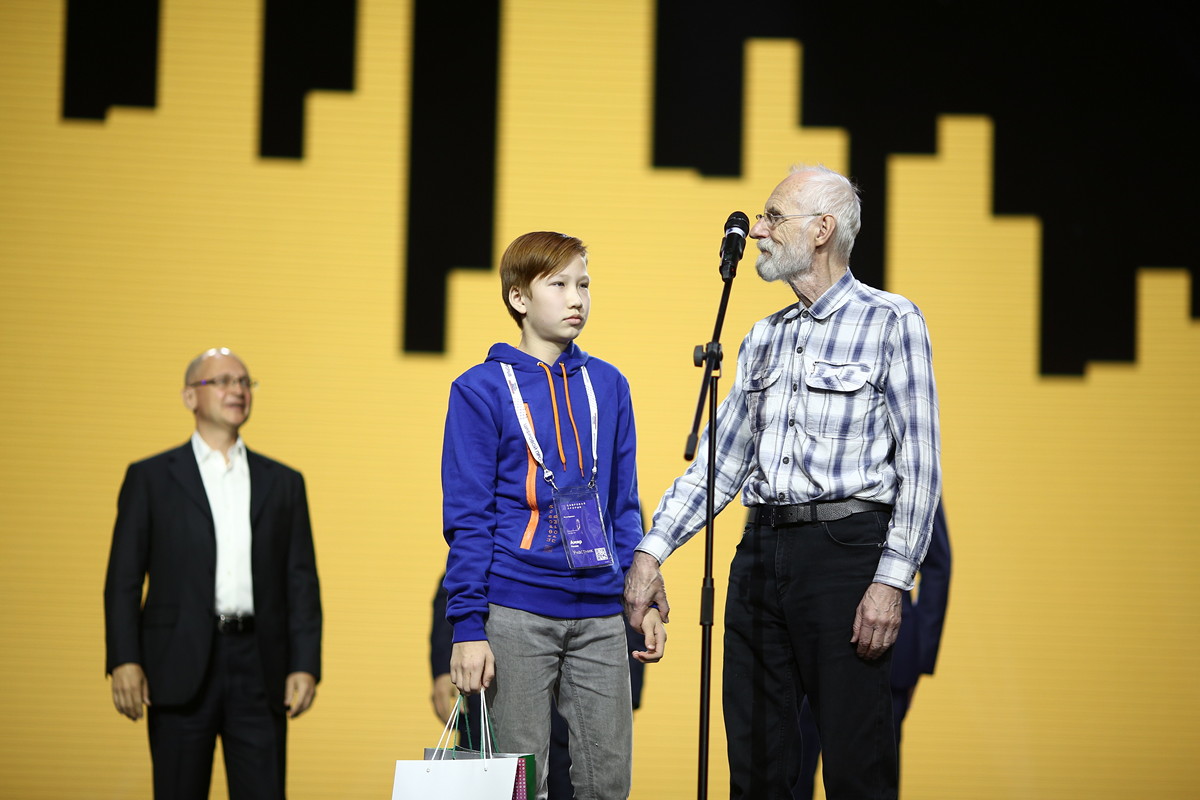
After the ceremony, the participants finally scattered around their tables and received assignments. The 48-hour “developer race” has begun.
Hackathon
Two-day hackathon for three thousand people - this is not a cat sneezed at you. People need to be carried away, that is, to offer interesting and varied tasks. Well, the prize fund plays not the last role - 500,000 rubles for each winning team + the opportunity to create a startup on a grant from the Development Assistance Fund, or even hire some partner company on staff.
There were a total of 20 nominations + 6 more “student” ones. The tasks were not plots sucked from the finger, but actual problems that the employees of the companies themselves are either already working on or just trying to approach.
The nominations themselves were often formulated very vaguely. And only after the start of the hackathon, the teams received specific tasks.
Formal Description of Nominations About 170 specialists were allocated to help the hackathon participants: some of them were provided by the organizers, and some were provided by partner companies. Specialists not only advised teams on certain technical issues, but also issued the tasks themselves. And everything was not going smoothly here. After the hackathon was completed, some participants said that one of the specialists gave tasks in the style of “doing it”, instead of “doing it”, as, in theory, it should be. A hackathon is about creativity, about ingenuity and an unusual look at the solution of a task, and not a control one. Alas, subjective competitions such as hackathons will always have a human factor. You can’t get away from it, you can only smooth it out in different ways.
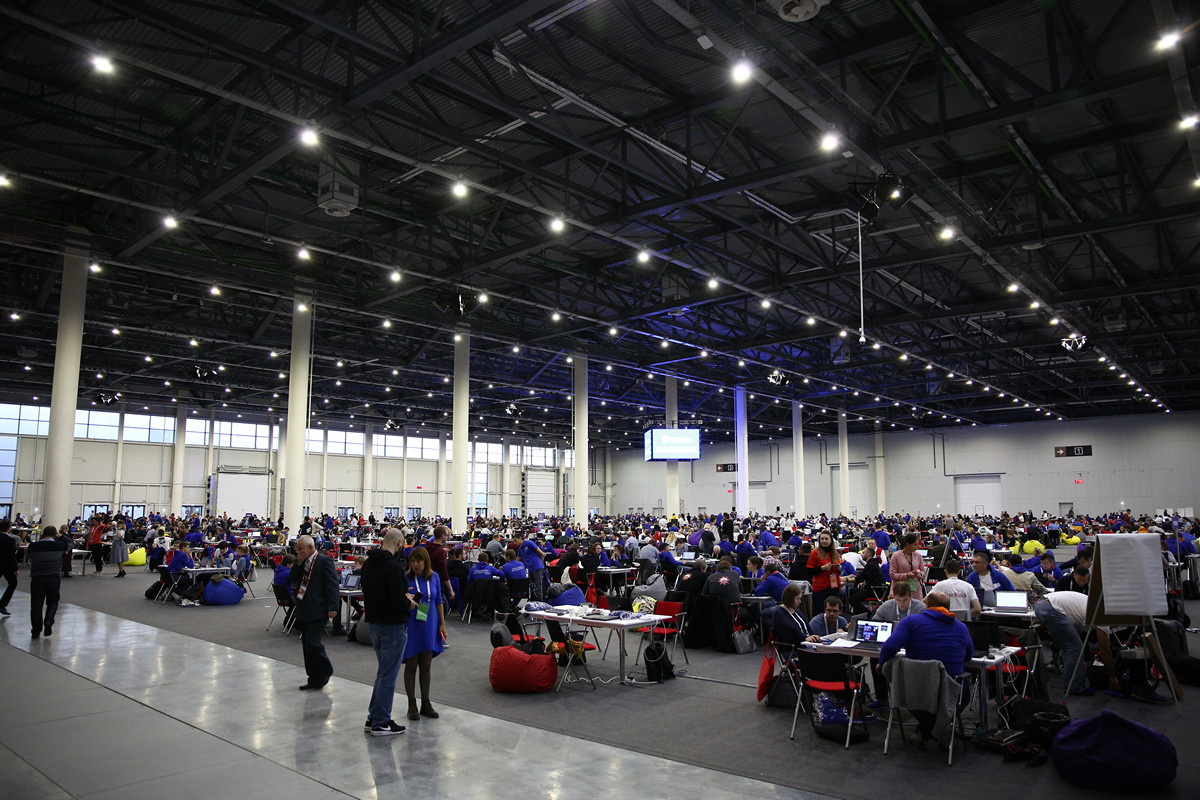

Above, I mentioned the Guinness Book of Records. It turned out that in order to get there, it was necessary to comply with strict requirements: the hall could be left no more than an hour, a strict access system, comprehensive monitoring, interviewing witnesses, providing detailed reports about the participants. Of course, the most uncomfortable thing for the participants was the restriction during the hour of absence - if you didn’t have time to eat in the dining room because of the lines, you should run back hungry. You look, your colleagues will bring something.
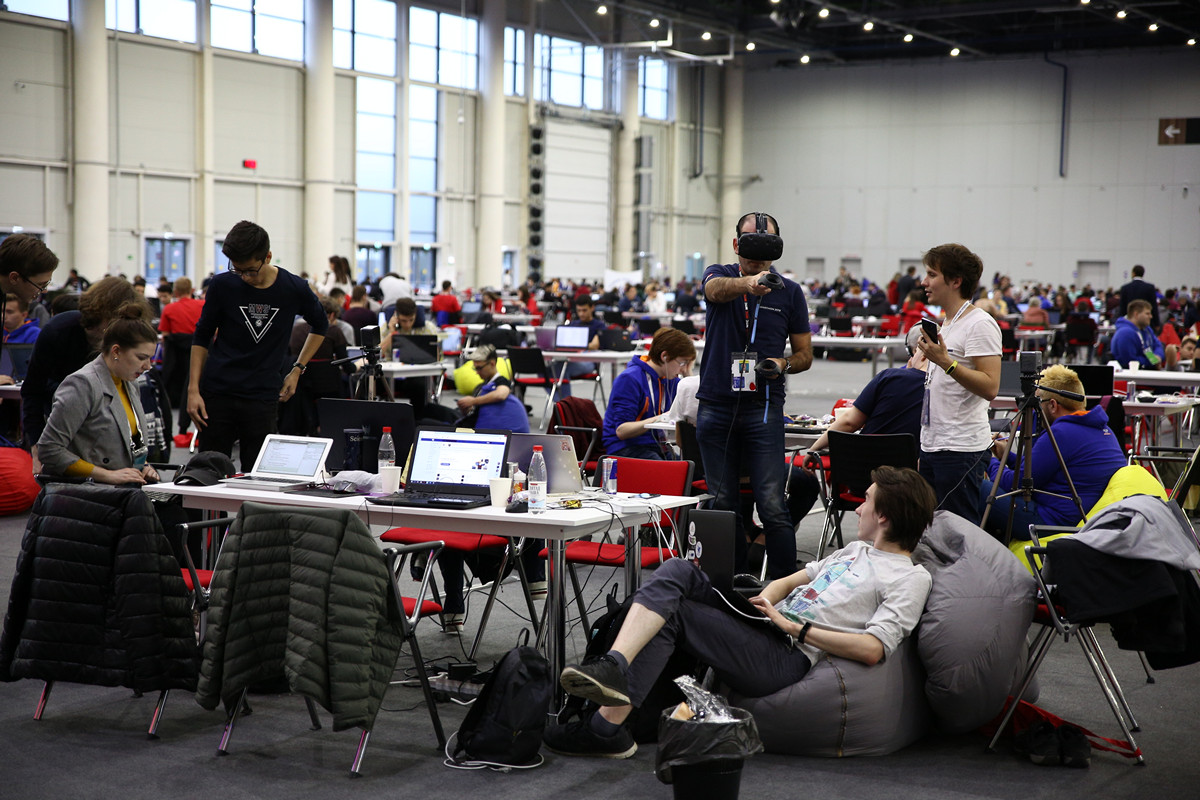
In general, I want to pay tribute to the organizers: there were no serious schools at such a large-scale, and even a two-day event (maybe I don’t know anything, and the participants themselves will correct me). Probably the most noticeable fakap was that only one ottoman stood out for the team. There were plenty of chairs for everyone, but what about an overnight stay? Yes, you could go to bed at the hotel, but you need to spend a lot of time on the road - Kazan Expo is located close to the airport, and cut to the city either by taxi or by express train, an analogue of the Moscow Aeroexpress. And time is the main value on the hackathon. So if you gape, your ottoman will quickly find a new owner, everyone really wants to sleep.



However, there were those who did not expect favors from the
nature of the organizers and prepared thoroughly for the hackathon:
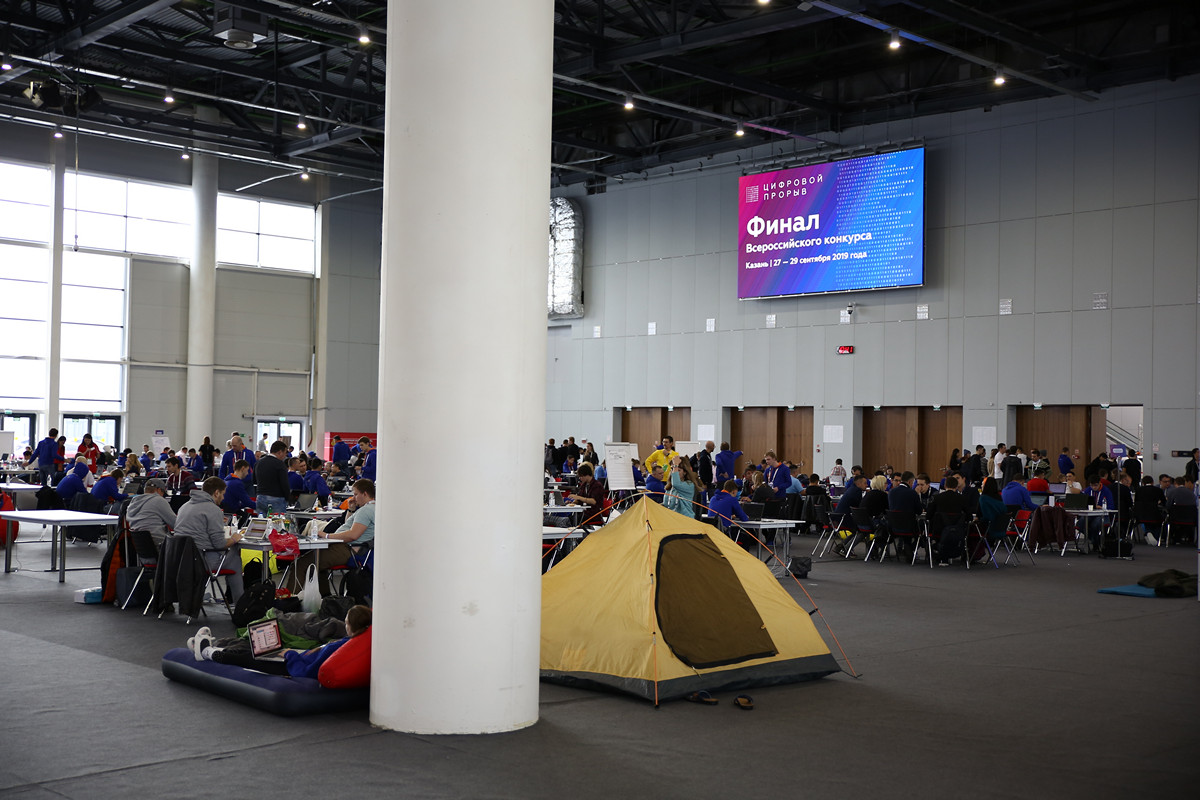
By the way, in parallel with the finals, there was also a school hackathon, organized for students in grades 8-11 from Tatarstan. There were their tasks, their prizes and even their own entertainment program.

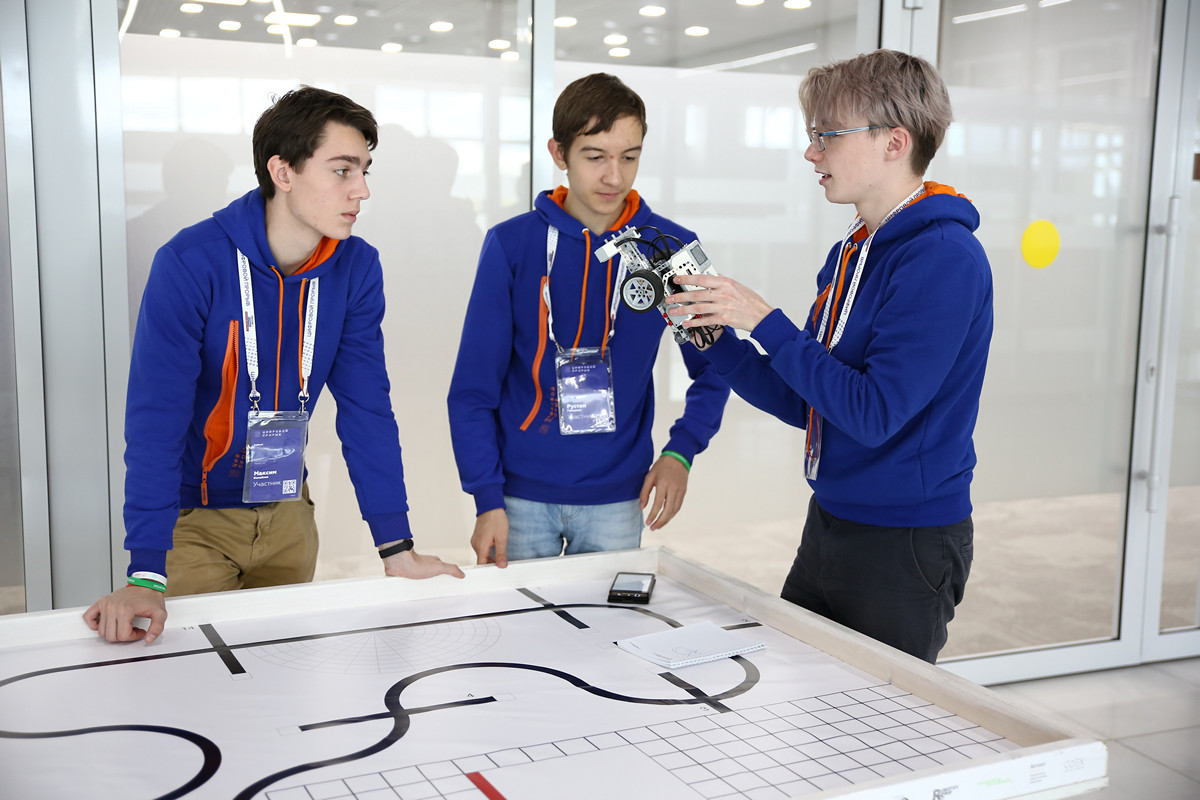

On Sunday morning, the finals passed their work to the jury and went to pre-defense. In fact, this was an additional screening: on the pre-defense, some of the teams were not allowed to defense, because their development did not meet one or more criteria. Of course, there was also talk of bias and injustice. Well, here I can only make a helpless gesture - purely according to the theory of probability, someone really could have been kicked unfairly, but this is a hackathon.
And a few hours later the defense began. A separate room was allocated for each nomination. And there all the teams that reached the end spoke for 5 minutes before the jury and answered questions.
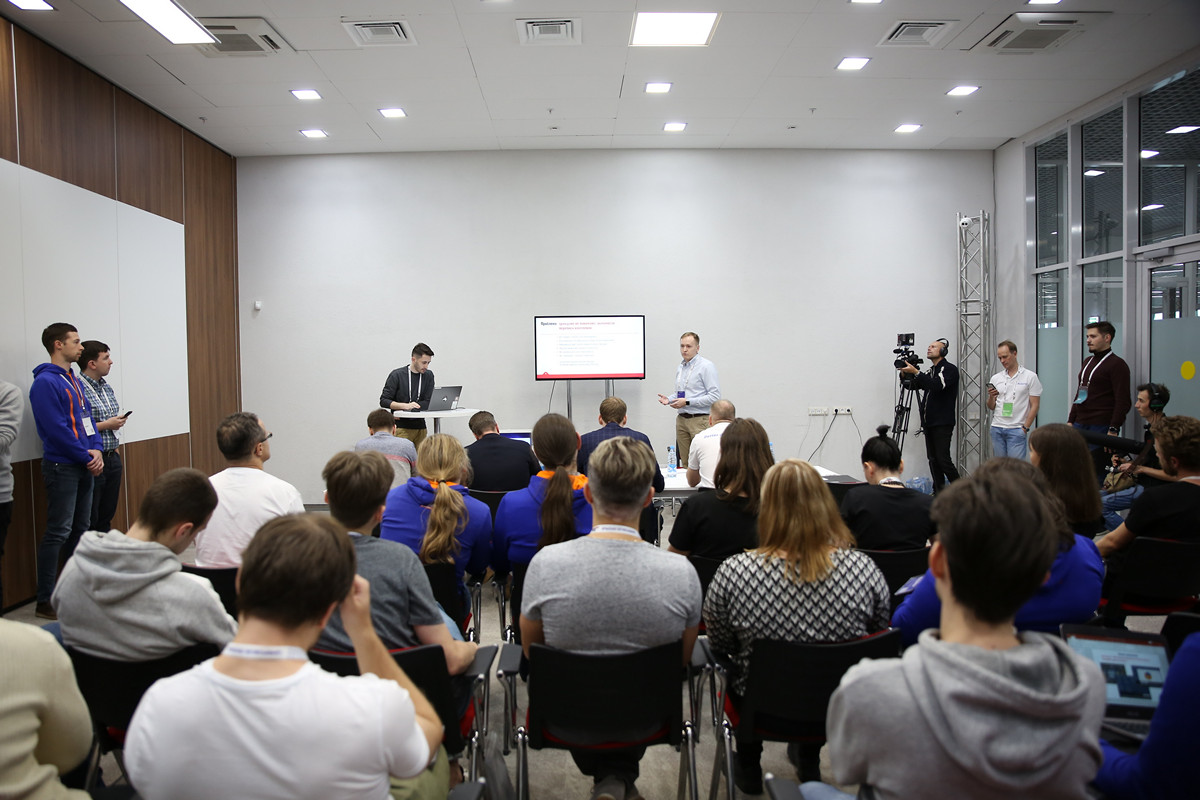
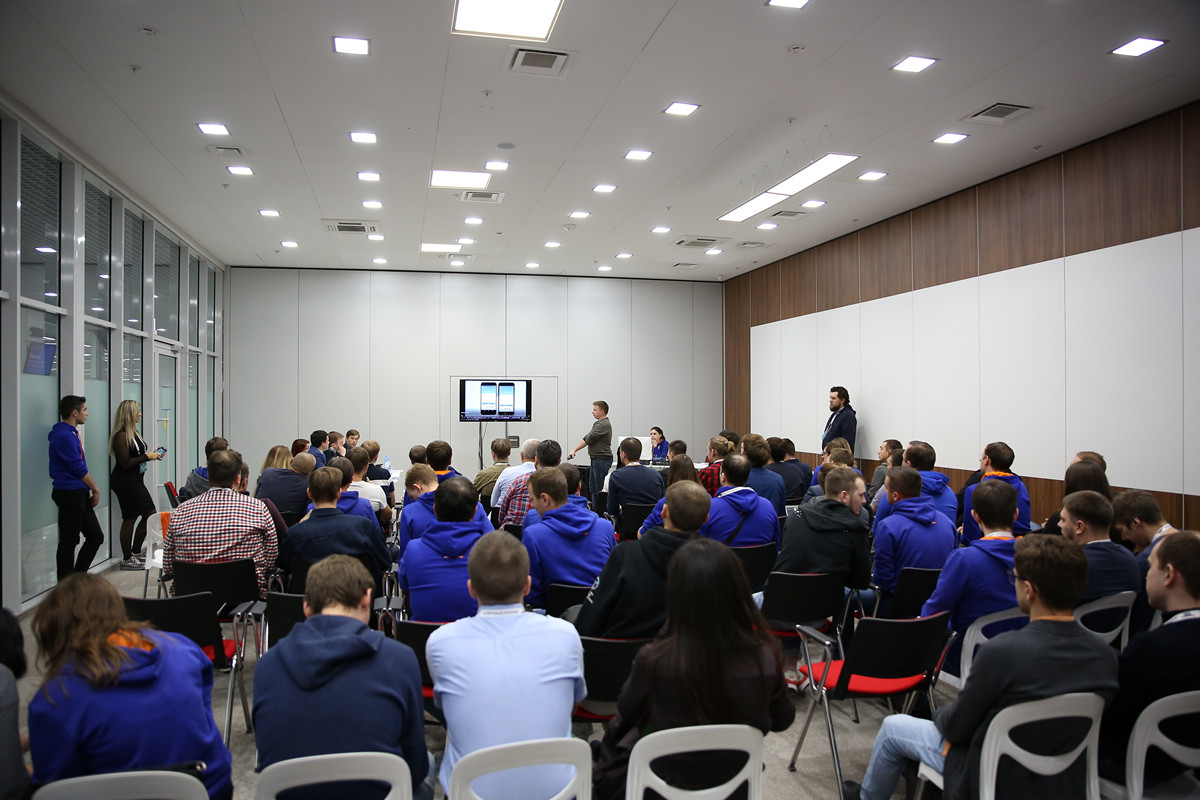
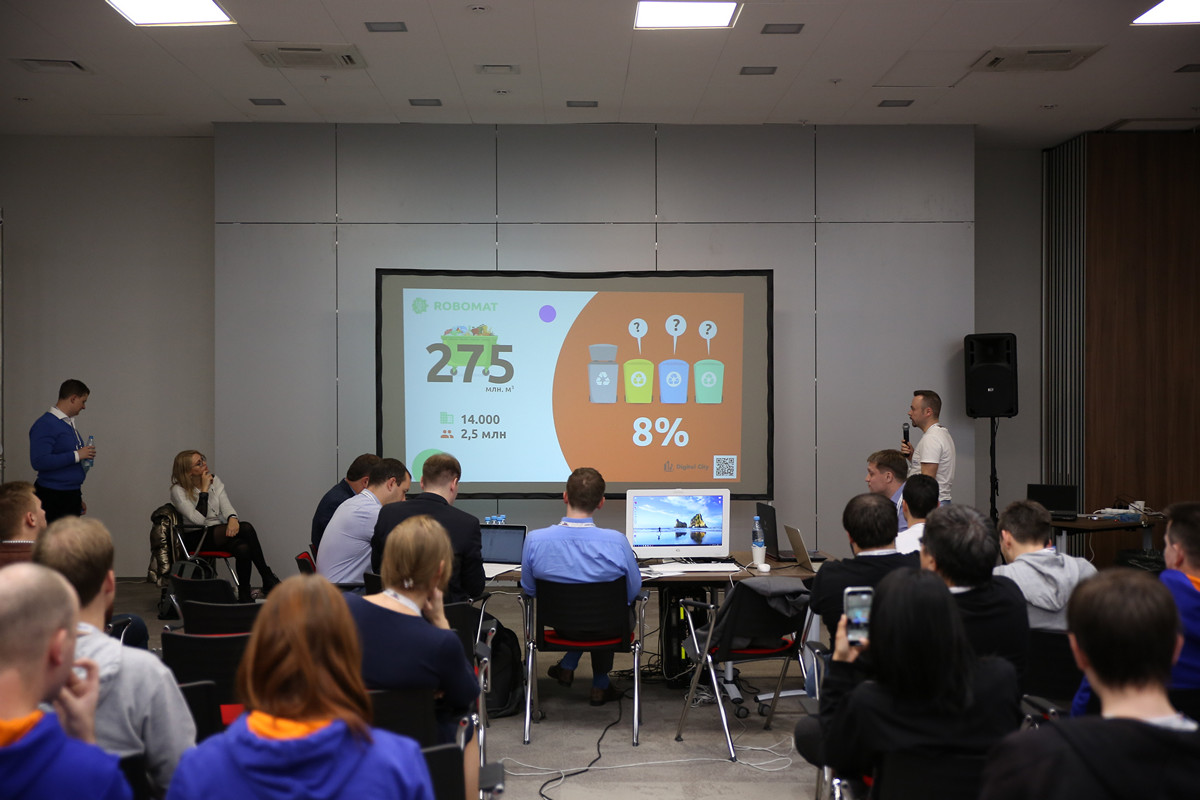
And finally - the closing ceremony. She was even larger than the opening. Announcements of winners in various categories were interspersed with performances by artists and singers. I will not describe, you can watch the video
here .
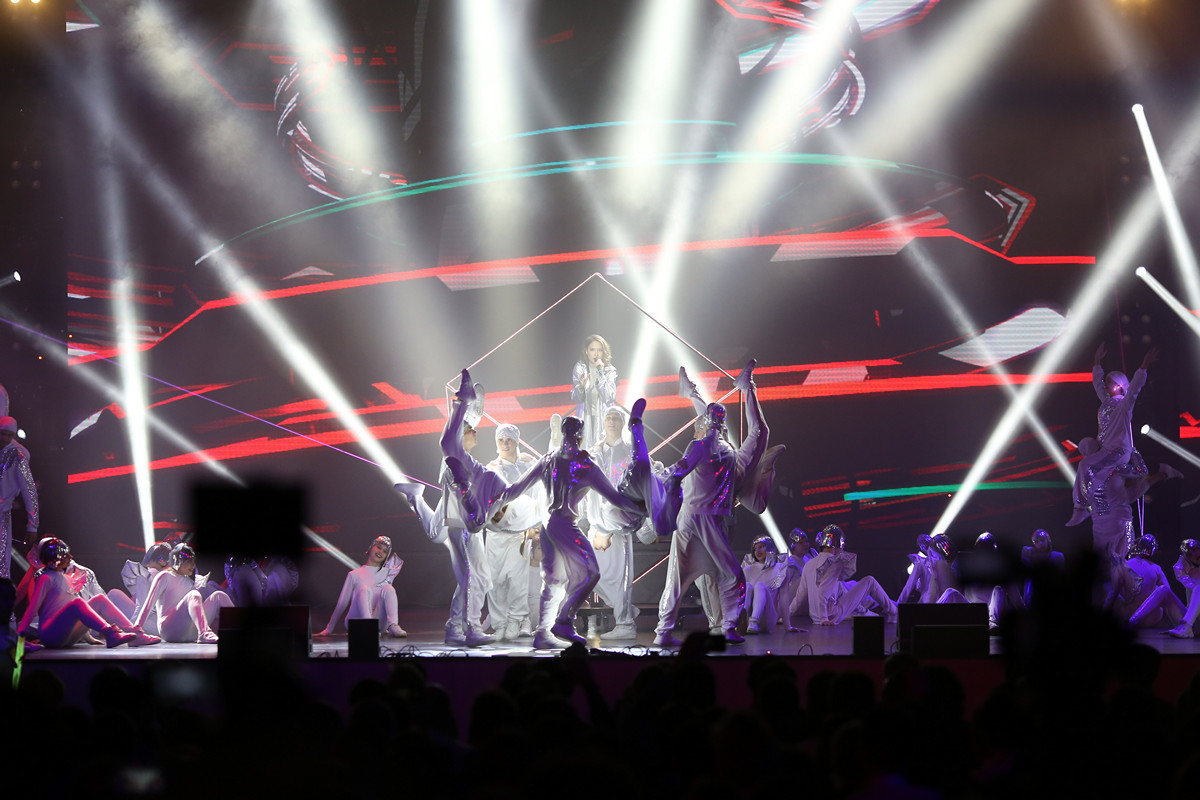
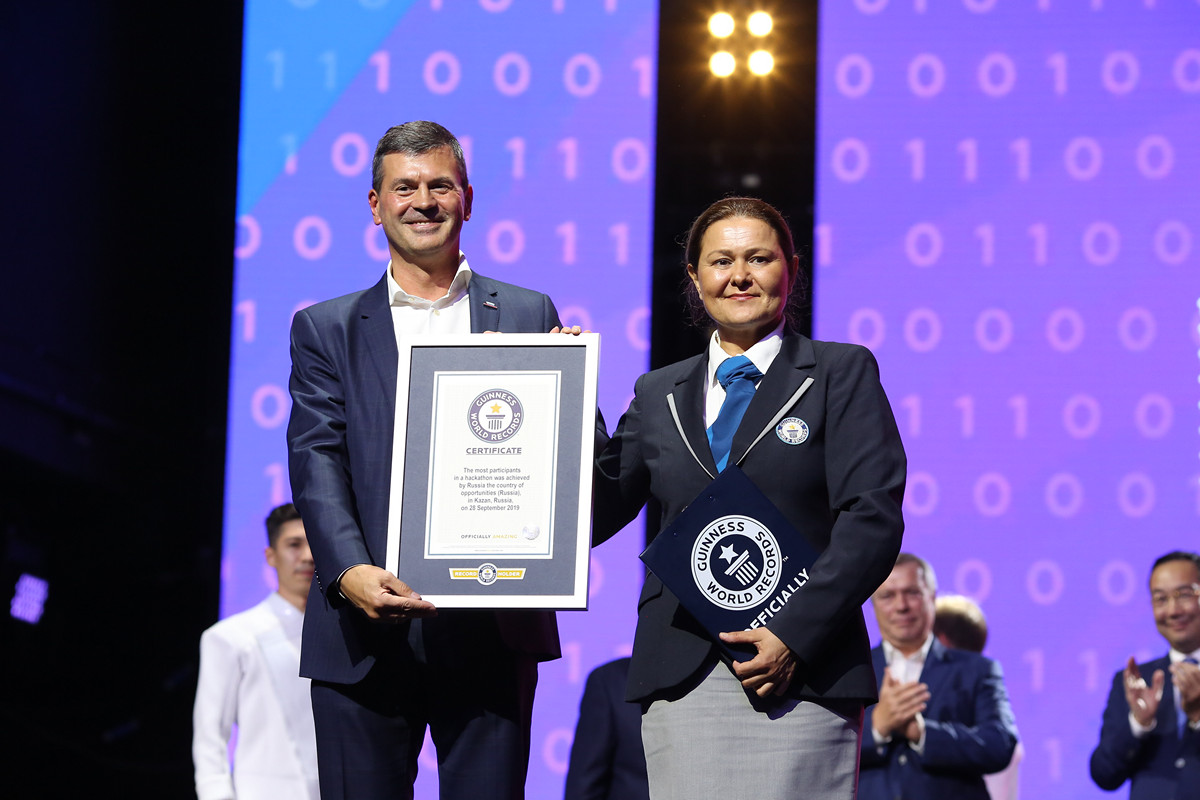
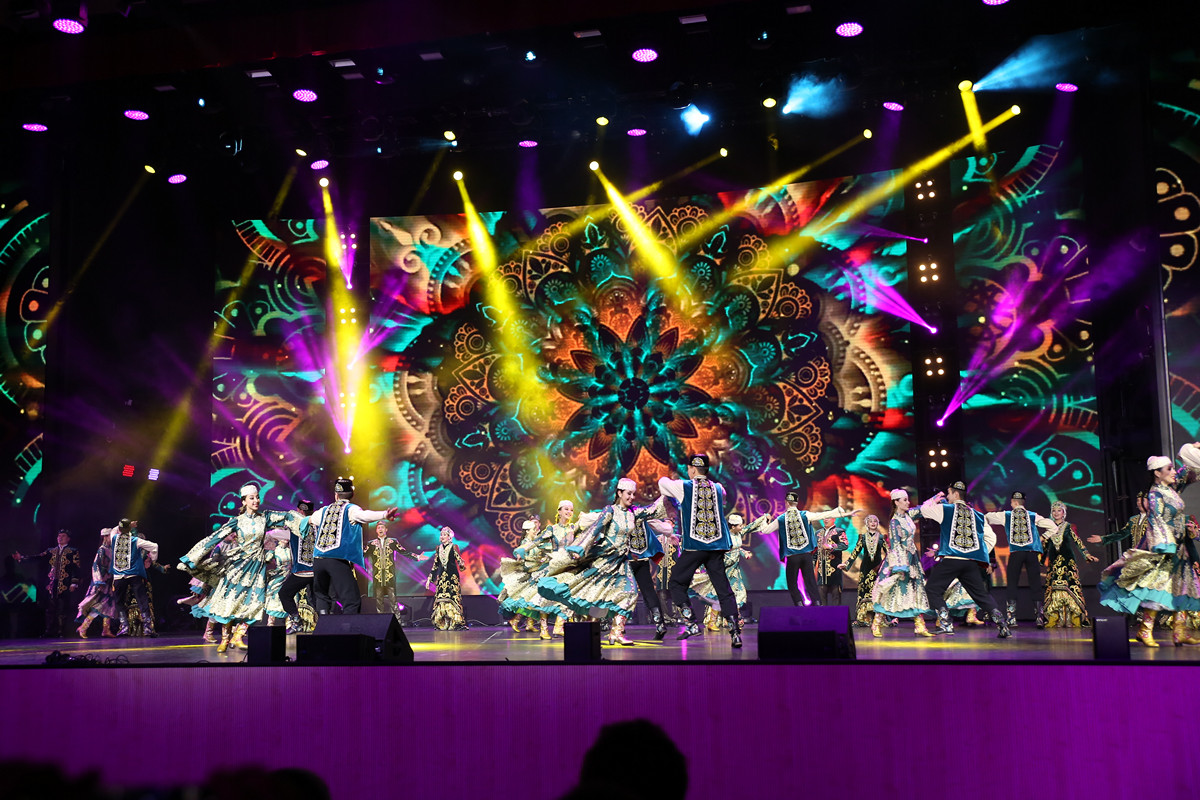
The winners were handed out posters with a face value of 500,000, and the winners of student nominations - 100,000 each. And to the roar of music from the next dance performance, the people reached out.
Impressions
In my opinion, the whole story with the Digital Breakthrough is a kind of social elevator for residents of distant corners. What is the fate of a programmer or software designer from a small town? Either go to a large city, most often to Moscow, or interrupt on freelance. And the “Digital Breakthrough” gave a chance to prove itself. Yes, among the participants there were employees of large metropolitan companies and successful businessmen, but they were far from the majority. And one can only rejoice at how many talented people were able to show themselves through the competition. Yes, just prove to yourself that they really know their job, even if they have not won, but have reached the finals and semifinals, being better than thousands of others.
As for the achievements of the winning teams, as the representative of Rostelecom honestly said, this will go to the basket. Someone will be outraged, but we will be frank: in two days without sleep and rest, a commercial product cannot be created. Ideas and approaches - that's what hackathons do. And the prototypes themselves are one-day butterflies. If you have ever participated in a hackathon, you understand this very well.
Why was a hackathon needed for partner corporations? Of course, pragmatism drove them. There are needs and plans for hiring specialists, but only where to get them, so that there is enough for everyone, and even the right qualifications. Therefore, staff shortages are forcing companies to look for promising IT professionals almost from school. Well, ideas for launching startups also come at a price.
So, in my opinion: “Digital Breakthrough” turned out to be a useful idea primarily from a socio-economic point of view. As a country, we are far behind in terms of the number of IT specialists and the pace of IT development from world leaders. According to the rector of Innopolis, there are about 6.5 million IT people in the United States, which is almost 2% of the population. And we have - 800 thousand, only 0.5%. In my opinion, if you do not attract talent in this area, then soon we will simply be devoured in the
global IT race .
And what will be the real exhaust from the hackathon will be clear later. 60 teams from the finals will fall into the pre-acceleration program and will be able to finish their decisions to the commercial level to protect them before investors, foundations and corporations. Protection is scheduled for late November.
What do you think about this whole story?